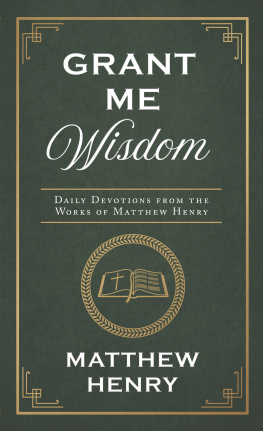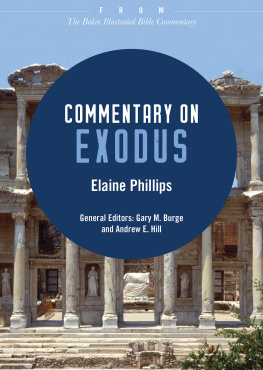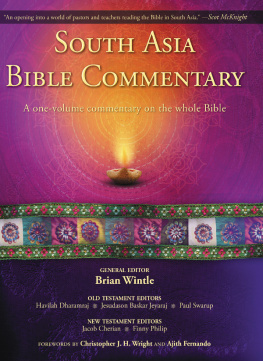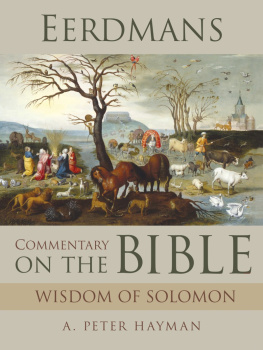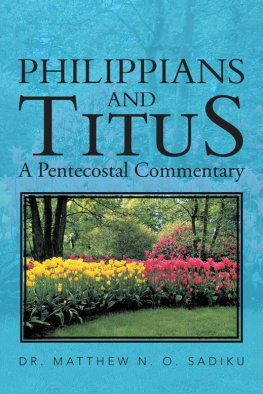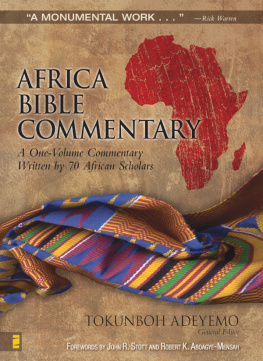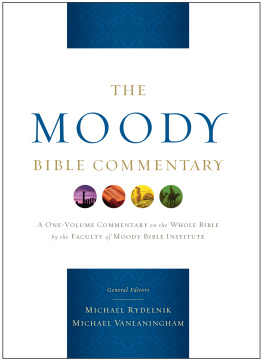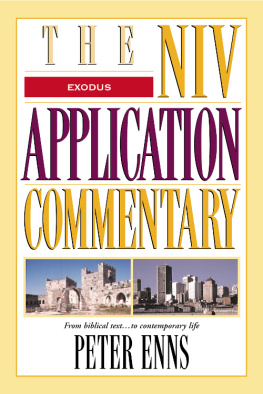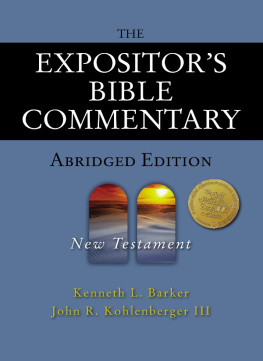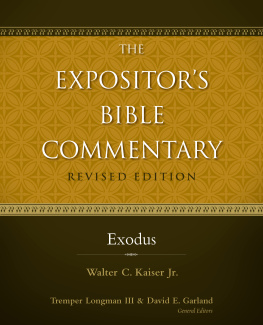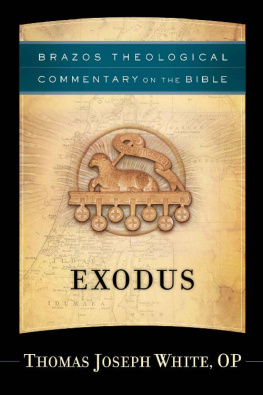Exodus 1
We have here, I. God's kindness to Israel, in multiplying them exceedingly (v. 1-7). II. The Egyptians' wickedness to them, 1. Oppressing and enslaving them (v. 8-14). 2. Murdering their children (v. 15-22). Thus whom the court of heaven blessed the country of Egypt cursed, and for that reason.
Verses 1-7
In these verses we have, 1. A recital of the names of the twelve patriarchs, as they are called, Acts 7:8. Their names are often repeated in scripture, that they may not sound uncouth to us, as other hard names, but that, by their occurring so frequently, they may become familiar to us; and to show how precious God's spiritual Israel are to him, and how much he delights in them.
The account which was kept of the number of Jacob's family, when they went down into Egypt; they were in all seventy souls (v. 5). according to the computation we had, Gen. 46:27. This was just the number of the nations by which the earth was peopled, according to the account given, Gen. 10. For when the Most High separated the sons of Adam, he set the bounds of the people according to the number of the children of Israel, as Moses observes, Deu. 32:8. Notice is here taken of this that their increase in Egypt might appear the more wonderful. Note, It is good for those whose latter end greatly increases often to remember how small their beginning was, Job 8:7.
3. The death of Joseph, v. 6. All that generation by degrees wore off. Perhaps all Jacob's sons died much about the same time; for there was not more than seven years' difference in age between the eldest and the youngest of them, except Benjamin; and, when death comes into a family, sometimes it makes a full end in a little time. When Joseph, the stay of the family, died, the rest went off apace. Note, We must look upon ourselves and our brethren, and all we converse with, as dying and hastening out of the world. This generation passeth away, as that did which went before.
4. The strange increase of Israel in Egypt, v. 7. Here are four words used to express it: They were fruitful, and increased abundantly, like fishes or insects, so that they multiplied; and, being generally healthful and strong, they waxed exceedingly mighty, so that they began almost to outnumber the natives, for the land was in all places filled with them, at least Goshen, their own allotment.
Observe, (1.) Though, no doubt, they increased considerably before, yet, it should seem, it was not till after the death of Joseph that it began to be taken notice of as extraordinary. Thus, when they lost the benefit of his protection, God made their numbers their defence, and they became better able than they had been to shift for themselves. If God continue our friends and relations to us while we most need them, and remove them when they can be better spared, let us own that he is wise, and not complain that he is hard upon us.
After the death of Christ, our Joseph, his gospel Israel began most remarkably to increase: and his death had an influence upon it; it was like the sowing of a corn of wheat, which, if it die, bringeth forth much fruit, Jn. 12:24. (2.) This wonderful increase was the fulfillment of the promise long before made unto the fathers. From the call of Abraham, when God first told him he would make of him a great nation, to the deliverance of his seed out of Egypt, it was 430 years, during the first 215 of which they were increased but to seventy, but, in the latter half, those seventy multiplied to 600,000 fighting men. Note, [1.] Sometimes God's providences may seem for a great while to thwart his promises, and to go counter to them, that his people's faith may be tried, and his own power the more magnified. [2.] Though the performance of God's promises is sometimes slow, yet it is always sure; at the end it shall speak, and not lie, Hab. 2:3.
Verses 8-14
The land of Egypt here, at length, becomes to Israel a house of bondage, though hitherto it had been a happy shelter and settlement for them. Note, The place of our satisfaction may soon become the place of our affliction, and that may prove the greatest cross to us of which we said, This same shall comfort us. Those may prove our sworn enemies whose parents were our faithful friends; nay, the same persons that loved us may possibly turn to hate us: therefore cease from man, and say not concerning any place on this side heaven, This is my rest for ever. Observe here,
I. The obligations they lay under to Israel upon Joseph's account were forgotten: There arose a new king, after several successions in Joseph's time, who knew not Joseph, v. 8. All that knew him loved him, and were kind to his relations for his sake; but when he was dead he was soon forgotten, and the remembrance of the good offices he had done was either not retained or not regarded, nor had it any influence upon their councils. Note, the best and the most useful and acceptable services done to men are seldom remembered, so as to be recompensed to those that did them, in the notice taken either of their memory, or of their posterity, after their death, Eccl. 9:5, 15. Therefore our great care should be to serve God, and please him, who is not unrighteous, whatever men are, to forget our work and labour of love, Heb. 6:10. If we work for men only, our works, at furthest, will die with us; if for God, they will follow us, Rev. 14:13. This king of Egypt knew not Joseph; and after him arose one that had the impudence to say, I know not the Lord, ch. 5:2. Note, Those that are unmindful of their other benefactors, it is to be feared, will forget the supreme benefactor, 1 Jn. 4:20.
II. Reasons of state were suggested for their dealing hardly with Israel, v. 9, 10. 1. They are represented as more and mightier than the Egyptians; certainly they were not so, but the king of Egypt, when he resolved to oppress them, would have them thought so, and looked on as a formidable body. 2. Hence it is inferred that if care were not taken to keep them under they would become dangerous to the government, and in time of war would side with their enemies and revolt from their allegiance to the crown of Egypt. Note, It has been the policy of persecutors to represent God's Israel as a dangerous people, hurtful to kings and provinces, not fit to be trusted, nay, not fit to be tolerated, that they may have some pretence for the barbarous treatment they design them, Ezra 4:12, etc.; Esth. 3:8.
Observe, The thing they feared was lest they should get them up out of the land, probably having heard them speak of the promise made to their fathers that they should settle in Canaan. Note, The policies of the church's enemies aim to defeat the promises of the church's God, but in vain; God's counsels shall stand. 3. It is therefore proposed that a course be taken to prevent their increase: Come on, let us deal wisely with them, lest they multiply. Note, (1.) The growth of Israel is the grief of Egypt, and that against which the powers and policies of hell are levelled. (2.) When men deal wickedly, it is common for them to imagine that they deal wisely; but the folly of sin will, at last, be manifested before all men.
III. The method they took to suppress them, and check their growth, v. 11, 13, 14. The Israelites behaved themselves so peaceably and inoffensively that they could not find any occasion of making war upon them, and weakening them by that means: and therefore, 1. They took care to keep them poor, by charging them with heavy taxes, which, some think, is included in the burdens with which they afflicted them. 2. By this means they took an effectual course to make them slaves. The Israelites, it should seem, were much more industrious laborious people than the Egyptians, and therefore Pharaoh took care to find them work, both in building (they built him treasure-cities), and in husbandry, even all manner of service in the field: and this was exacted from them with the utmost rigour and severity. Here are many expressions used, to affect us with the condition of God's people.


